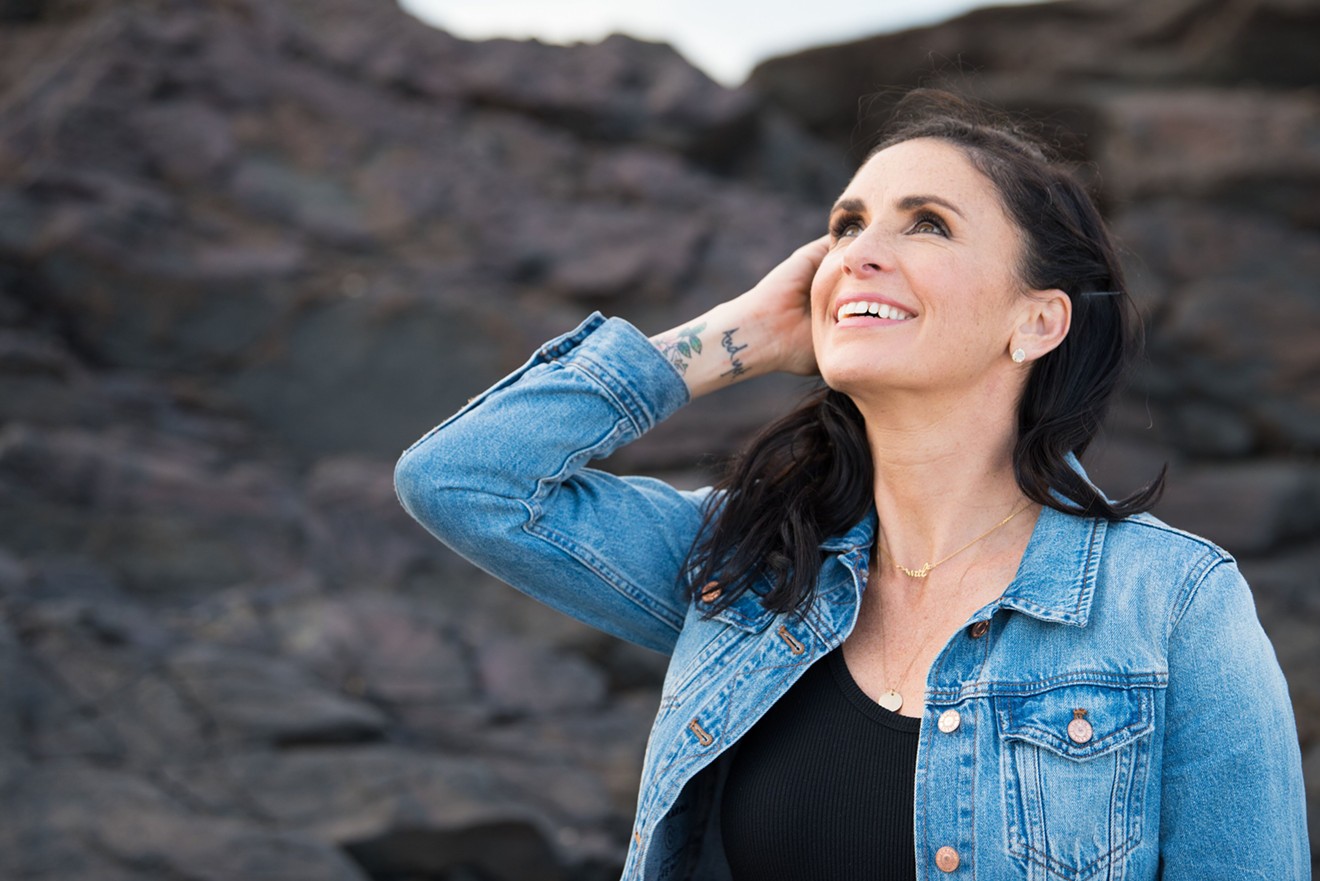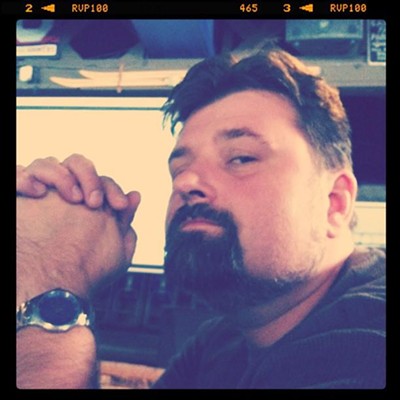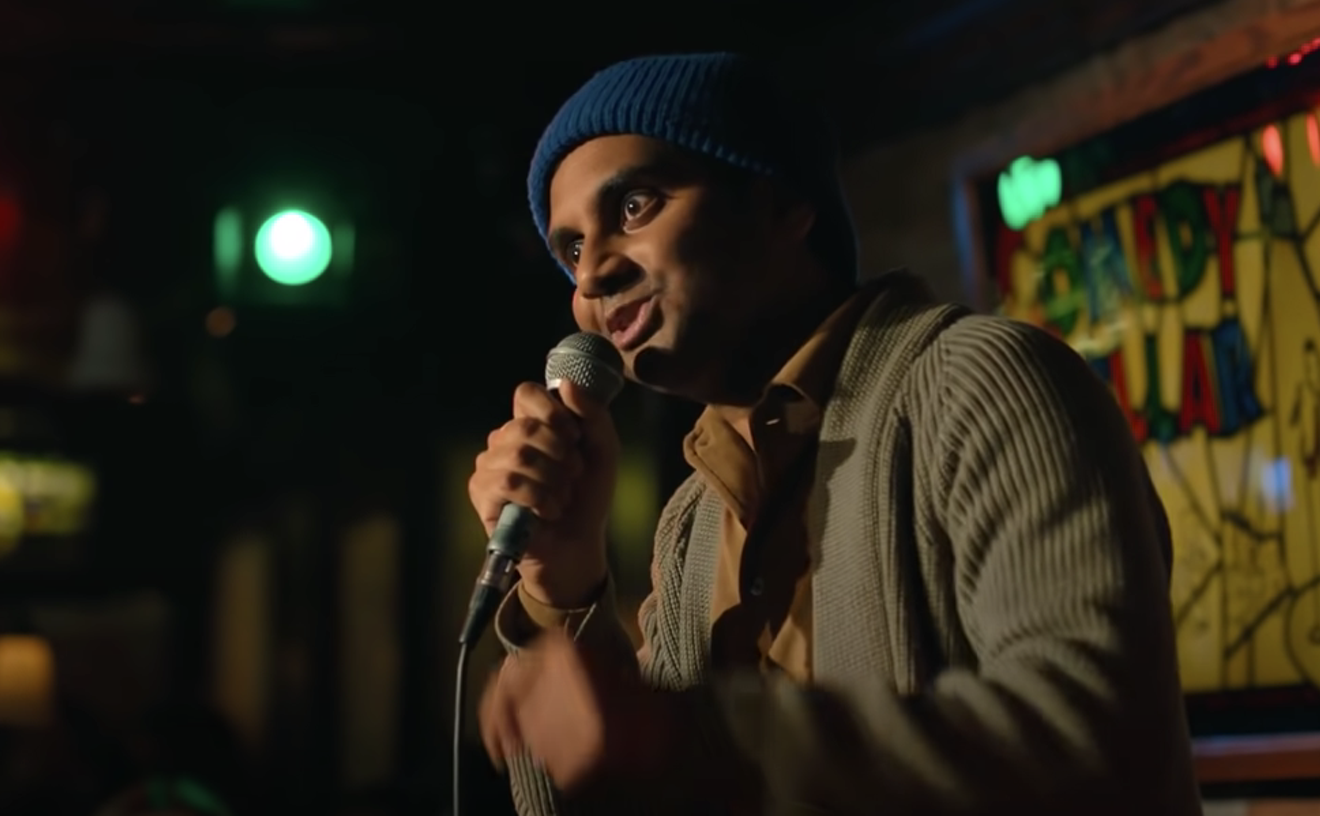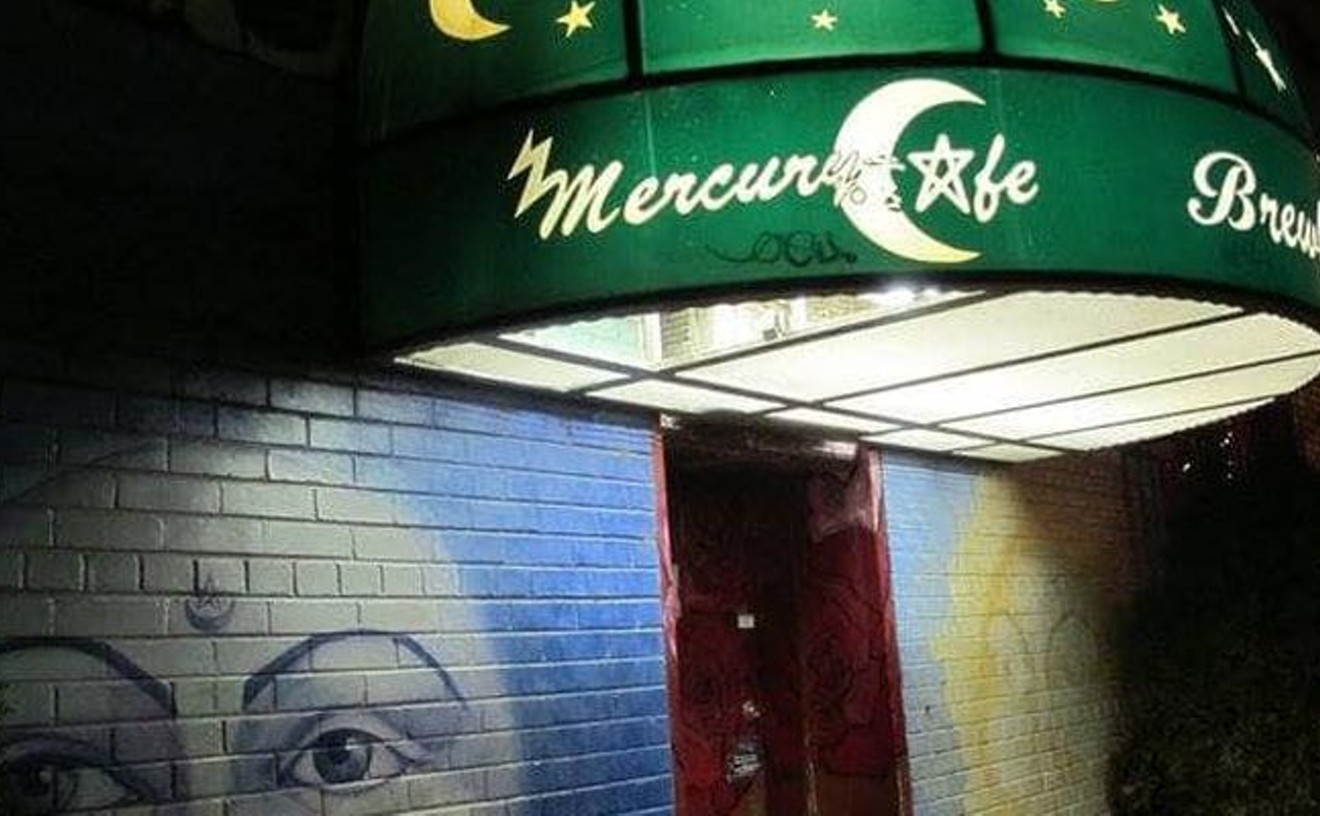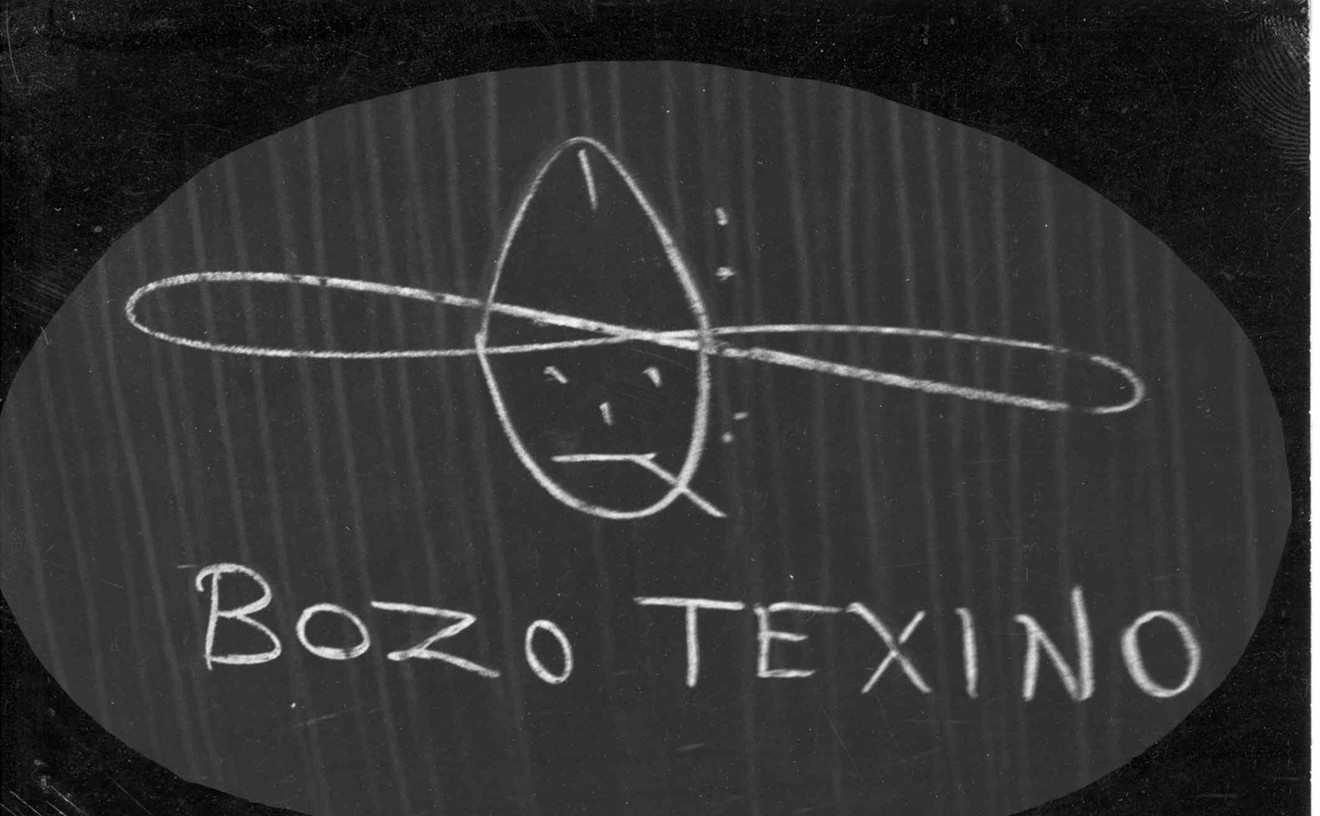Laura McKowen is an author, teacher and speaker…and also a recovering alcoholic, which is the subject of said writing, teaching and speaking. And when McKowen brings her new book to the Tattered Cover for a discussion and signing, it will be something of a coming home for her. McKowen was raised in Castle Rock and graduated from Colorado State University with a degree in marketing…and an addiction to alcohol.
We spoke with McKowen in advance of her homecoming appearance about her recovery, her writing, and how she came to find the luck in addiction.
Westword: You're bringing your book We Are the Luckiest to the Tattered Cover on March 5. What do you have planned for the event, and how special is it to be able to do it in a place you once called home?
Laura McKowen: I’ll be reading from the book and talking with my friend and fellow author, Annie Grace, afterward, and then talking with the crowd in an open Q&A. Annie and I both got sober around the same time, and it’ll be really special to reflect on this path with her. It’ll be incredibly special to return to the place where I grew up since it’s so woven into this book and my story.
Any particular memories of the Tattered Cover when you lived in Colorado?
I used to wander around the location in Cherry Creek for hours. It was my first “favorite book store,” and I remember just getting lost in there, poring over books, touching the spines. Still, when I think about an idyllic book store, I think of that one.
Talk a little bit about the title of the book — it's not what one might expect, given the subject of addiction.
When I was faced with getting sober, I thought people who could drink “normally” were just so lucky. I really believed sobriety was the end of everything for me: the end of a social life, a love life, a work life. There was a point, pretty early on, when I was laying with my daughter one night. She was asleep, and I had been crying. I felt a shift because as difficult as things were emotionally then, I was okay. I was safe. My daughter was safe. We were sleeping in clean sheets, and I wasn’t drinking and wouldn’t be hung over the next morning. I thought, this is what I’ve been chasing along, this direct experience of life. To be able to feel something fully, to really touch how much I loved my daughter, to feel some dignity about what I was doing. I thought, I am lucky. We are the luckiest. I posted something to Instagram with those words, and it stuck.
I really do believe that those of us who get the call to wake up to our lives — whatever that call may be, through addiction or otherwise — are the luckiest of all. We get to find out who we really are, to become more intimate with life, to be grateful for the good things, because we’ve been through hell.
Lots of the advice in the book goes against some traditional "rules" for recovery. Two come to mind: You advise against labeling oneself as an addict, and you also give people permission to "forget forever." Both of those things strike me as antithetical to, say, the AA approach. Can you talk a little about these differences?
I just don’t think the labels are very helpful. Nobody hears the word “addict” or “alcoholic” and thinks something positive, or even neutral. Those words carry with them an entire story, and usually a lot of judgment and shame. To me, addiction is something I have experienced, but it’s not who I am. Also, the labels make it seem like addiction is something that belongs to only a few people, when in reality, it’s a built-in part of the human condition. While not everyone will experience alcohol addiction like I did, we are all addicted to something.
Forget forever is actually quite in line with Alcoholics Anonymous’s aphorism “one day at a time.” I found that the word “forever” filled me with such despair in the beginning because I just wasn’t in a place to imagine the rest of my life without alcohol. So I just promised myself I wouldn’t drink that day, and that was it. It was the smallest of shifts but it changed everything for me, because it kept me in the moment. All we are ever doing is what we’re doing right now.
Even so, have you found AA to be helpful? Are you still attending meetings, or has this book become your continuing recovery process?
The people in AA saved my life in the beginning, absolutely, and I believe the steps offer a beautiful, powerful process of self-discovery and healing. I wrote about my somewhat complicated relationship with AA in the book, because I want people to know it can be complicated — that most things in life are — and that’s okay. I don’t really attend meetings much anymore, because so much of my life is connected to recovery through my work. I believe strongly in service, in sharing the message of recovery and in maintaining a spiritual life, which are all cornerstones of AA. I learned those things there and practice them, even though I’m not really an active member per se.
What's been the most surprising part of your own recovery?
That I ever thought my life would be small in sobriety. Even when things are hard — because life can be hard — it is far bigger, far more beautiful than I could have ever imagined.
And what's been the most surprising thing in writing this book, touring with it and talking to people?
Just how universal our pain is. While I have been talking to a lot of people who are sober or trying to get sober, there are also so many people who read and resonate with my book who’ve never had an alcohol problem. We’re all searching for the same things; we all want to connect and be loved and have meaning in our lives.
Books or films depicting addiction: Which works do you think come closest to your own experience? Which ones ring truest?
Drinking: A Love Story, by Caroline Knapp, is still my most beloved addiction memoir. She so precisely captured the emotionality of addiction and getting sober as a woman. It’s etched into my heart. Another one is Blackout, by Sarah Hepola. She weaves together themes of work life, ambition, seeking love, body issues and the relationship between women and alcohol. It’s excellent. I’m not a huge film person, but Crazy Heart was one that absolutely wrecked me.
You live in Boston now, but you grew up in Castle Rock and went to CSU. What parts of Colorado do you think fed your addiction, and which did you find most healthy and/or healing?
Fascinating question. I could easily say going to college at CSU fed my addiction, because like most big schools, it was a huge party school. Everyone drank. But I don’t know that it’s really a fair statement, as it’s not specific to Colorado — it’s more just college culture.
Mostly, when I think of Colorado I picture beauty, openness, summer storms, the mountains. Castle Rock wasn’t a particularly exciting place to grow up, but it was calm, suburban and friendly. I find going to concerts at Red Rocks to be an almost spiritual experience, running in Wash Park, and just being there with those mountains as a backdrop feels healing to me.
Laura McKowen will discuss and sign We Are the Luckiest, at 7 p.m. Thursday, March 5, at the Tattered Cover, 2526 East Colfax Avenue. Go to the website for more information.
[
{
"name": "Air - MediumRectangle - Inline Content - Mobile Display Size",
"component": "12017618",
"insertPoint": "2",
"requiredCountToDisplay": "2"
},{
"name": "Editor Picks",
"component": "17242653",
"insertPoint": "4",
"requiredCountToDisplay": "1"
},{
"name": "Inline Links",
"component": "18838239",
"insertPoint": "8th",
"startingPoint": 8,
"requiredCountToDisplay": "7",
"maxInsertions": 25
},{
"name": "Air - MediumRectangle - Combo - Inline Content",
"component": "17261320",
"insertPoint": "8th",
"startingPoint": 8,
"requiredCountToDisplay": "7",
"maxInsertions": 25
},{
"name": "Inline Links",
"component": "18838239",
"insertPoint": "8th",
"startingPoint": 12,
"requiredCountToDisplay": "11",
"maxInsertions": 25
},{
"name": "Air - Leaderboard Tower - Combo - Inline Content",
"component": "17261321",
"insertPoint": "8th",
"startingPoint": 12,
"requiredCountToDisplay": "11",
"maxInsertions": 25
}
]

